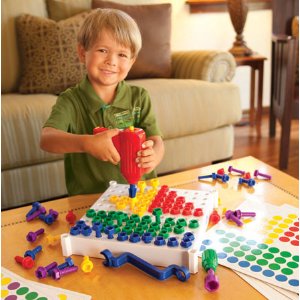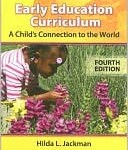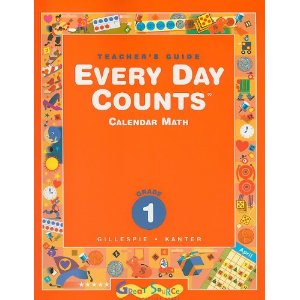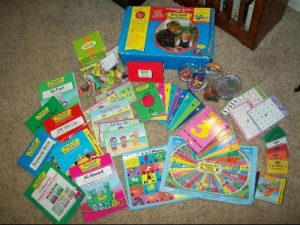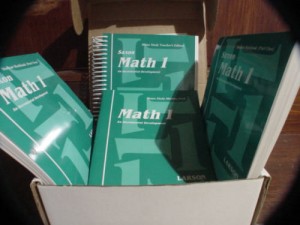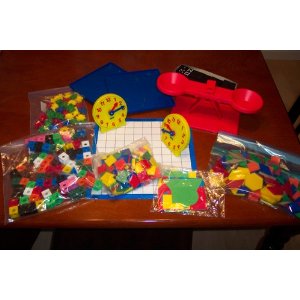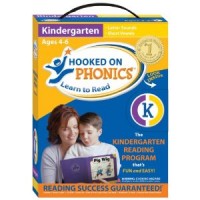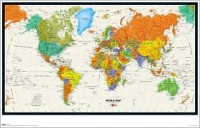
If you are new to homeschooling, curious about homeschooling or veteran homeschooler who wants to try out a new ways to teach at home, there are plenty of books out there. I have read them all (okay, most) and I am sharing the top and best of best homeschooling books for you here so you do not have to waste your precious time reading duds.
This 240 page book shares Unschooling, a homeschooling method based on the belief that kids learn best when allowed to pursue their natural curiosities and interests, is practiced by 10 to 15 percent of the estimated 1.5 million homeschoolers in the United States. There is no curriculum or master plan for allowing children to decide when, what, and how they will learn, but veteran homeschooler Mary Griffith comes as close as you can get in this slim manual. Written in a conversational, salon-style manner, The Unschooling Handbook is liberally peppered with anecdotes and practical advice from unschoolers, identified by their first names and home states. The book also includes resources such as one teenager’s sample “transcript,” a typical weekly log of a third-grader’s activities, and helpful lists of magazines, online mailing lists, Web sites, and catalogs. Griffith, a board member of the Homeschool Association of California (and the author of The Homeschooling Handbook), names Margaret Mead and Thomas Edison as two examples of those who have profited from unschooled childhoods, and further claims that research validates support for this controversial form of education. The “evidence” she cites, however, is predominantly theoretical writings from noted educators about the benefits of child-centered learning. The handbook suffers from a mild case of the Lake Wobegone syndrome–every unschooled children is seen as an above-average self-starter on the verge of genius–yet despite this overly rosy approach, the book is a well-organized guide for homeschoolers and other families contemplating the “un” life.
Here what back book Jackets says
“Overwhelmed?
Wonder how others do it all?
Not sure you’re cut out for homeschooling?
It’s time to break a myth: Homeschooling families aren’t perfect. In fact, real-life families like yours can be–and are–successful homeschoolers! That’s the life message of Sonya Haskins, who is dedicated to helping everyday families meet the challenges of home education and enjoy its countless benefits.
In this practical, encouraging guide, Haskins shares tried and true ideas for how to:
Discover a realistic vision of homeschooling for your family
Help your child get excited about learning
Find a routine that fits your goals and lifestyle
Nurture a biblical worldview in your child’s heart and mind
And much more
Whether you are already homeschooling or just considering it, this book offers the support, answers, and flexible strategies to help you succeed. Great resources for many homeschooling parents.
This comprehensive collection of tried-and-true—and generally inexpensive—ideas provides the best-of-the-best homeschooling activities that can be done anywhere, anytime, and by anyone. As a homeschooling parent, we are always looking for new and creative ways to teach our child the basics. Look no longer! Inside this innovative helper, you’ll find kid-tested and parent-approved techniques for learning math, science, writing, history, manners, and more that you can easily adapt to your family’s homeschooling needs. And even if you don’t homeschool, you’ll find this book a great teaching tool outside the classroom. You’ll discover fun and educational activities for kids ages 3 to 12, including how to:
·Create maps based on favorite stories, such as Treasure Island or The Wizard of Oz
·Make letters out of French fries as an alphabet learning aid
·Explore architecture by building igloos, castles, and bridges with sugar cubes and icing
·Review spelling words by writing them on the sidewalk with chalk
·And many more!
This was so useful when we started homeschooling and I use it even now for reference once in awhile. Here one reader said in her own words. “This book was so amazing I am lending it out to people who aren’t even thinking of homeschooling… it was just so wonderful to read! I was about to start homeschooling my oldest and didn’t have any idea where to start. Lisa Dobson addressed each of my fears and questions… and I don’t even know her! This book is so down to earth that it will put anyone at ease, and the advice she and the many many other homeschoolers give is so practical. I started using the information immediately. There are two wonderful features I would like to detail for you: first of all, she takes nine different styles of homeschooling, explains them thoroughly, and then takes you through “A week in the life” with a family using each. As a new homeschooler, this helped me immensely by helping me eliminate those philosophies which I know would not work for our family, but find some philosophies that I will research further. The second feature are the abundance of “What I Wish I had Known the First Year” highlights throughout the book. You will not regret this purchase! ”
This 320 pages book is must for every homeschooler.The key to successful home education, homeschool veterans will tell you, is determining your educational philosophy and marrying it to your child’s learning style. Then you can make an informed decision in choosing the right educational curriculum for the child. This is the formula for success. In 100 Top Picks for Homeschool Curriculum, homeschool guru Cathy Duffy can help you accomplish these critical tasks. Cathy will give you her top choices from every subject area, approaching everything through a Christian worldview perspective. This book is a critical volume for the homeschooling community.
If you are like me, I like to know what to teach year by year so I know I stay focus and know what my child is learning what he supposed to know and learn. Finally, homeschoolers have a comprehensive guide to designing a homeschool curriculum, from one of the country’s foremost homeschooling experts. , Rebecca Rupp presents a structured plan to ensure that your children will learn what they need to know when they need to know it, from preschool through high school. Based on the traditional pre-K through 12th-grade structure, all the way until college to ease your mind on education at home.
This huge mega 880 page is true reference for me and many other experience homeschooling parents I know. There’s so much packed into it about so many interesting and unusual resources, with something for everyone. It’s gratifying to see a reference book so well done. The Complete Home Source Book is quite literally a huge delight. The subtitle says it well: The Essential Resource Guide for Homeschoolers, Parents, and Educators, Covering Every Subject from Arithmetic to Zoology. The book is nicely organized into subjects of study, and the subject titles are thoughtfully printed at the page edges in dark blocks to show even with the pages closed. Each entry is tagged with the age group for which the resource is intended. Symbols are used to identify whether the resource is: a book, curriculum, kit, video, software, magazine, audio, game, on-line resource, hands-on activity, or catalog.
This book title caught my eye and I had to buy it as frugal stay at home of 2 kids, I could use saving so this book intrigued me. This book is 480 pages long and Comprehensive and clear, Homeschool Your Child for Free gives you access to free instructional material–from reading-readiness activities for preschoolers to science projects for teens–to help build a strong foundation that will last into adulthood. You don’t need to drain your bank account to guarantee a good education for your child. With a computer and the Internet, you have the largest library and laboratory right at your fingertips–all for free!
Free Range Learning presents eye-opening data about the meaning and importance of natural learning. This data-from neurologists, child development specialists, anthropologists, educators, historians and business innovators-turns many current assumptions about school-based education upside down. The book’s factual approach is balanced by quotes and stories from over 100 homeschoolers from the U.S., Canada, Germany, Australia, Ireland, New Zealand, Mexico, India and Singapore. These parents and kids are the true authorities on alternative learning. Written for interested parents and educators, Free Range Learning will also encourage and excite those who want their children to have the benefits, but who are timid to approach homeschooling.
If you are on fence about homeschooling or even curious just because? This is the book for you. Overall, I would say this book does a good job of refuting, point-by-point, the most common misconceptions about the lack of socialization of homeschooled children. Although I had a few problems with it (quite a bit of repetition and somewhat outdated statistics), the book presented a fairly comprehensive argument that homeschooling does, in fact, provide children many benefits where socialization is concerned.
I first found this book through our local library system. After checking it out from the library, I looked through it and decided that this book was worthy of purchase! One of my favorite things about the book is the companion CD which includes every list from the book – ready to print out! I expect that we’ll print out certain pages & use the printout to easily research various topics on the internet or at the library. I would highly recommend this book to anyone who homeschools but also to parents with kids in public school. This 560 pages book is still my go to reference book on my book shelf.
I never felt like I was dummy for anything but this book sure opened up my eye when I was new to homeschooling as when it came to homeschooling I had lot to learn few year ago. Every other homeschooling book I ever picked up had an agenda — they wanted you to do things this way or that way, and preached that no other way of teaching could possibly work at all. HOMESCHOOLING FOR DUMMIES explains the pros and cons of many different teaching methods without proclaiming that any one of them is the *only* answer. Most importantly, the author shares her experiences with things that worked and things that failed with her own kids, and how she continually reshapes her teaching approaches. It felt great to finally hear someone say “find what works for your kids and do it”!!!
What are you favorite reference books for homeschooling?

